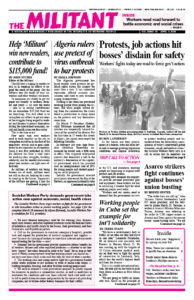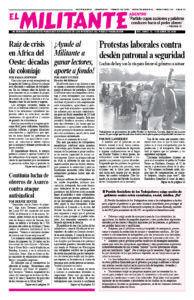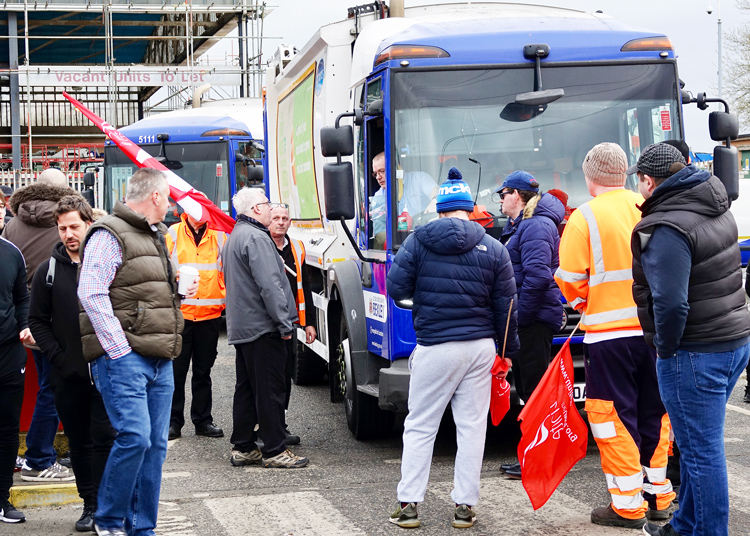LONDON — Seventy refuse workers picketed the Thames Road Serco waste disposal depot in Bexley, in south-east London, March 18. Unite union members were taking strike action against low wages, lack of sick pay and multitier wages and conditions. Truck drivers passing along the busy highway sounded their horns in solidarity with the strikers.
“With this coronavirus problem, some workers have been refused time off to tend to family members,” Richard Thompson told the Militant. He has worked at the depot for 15 years. “The company hasn’t even provided hand sanitation for when we’re out on a run. The last they told us was that we’d have to wait four weeks for supplies.”
“Some people are on less than 9 pounds per hour ($10.50) and there are at least four different sets of conditions involving huge differences in pay,” striker Henry Powell said. “People are fed up. Some workers get sick pay, others don’t. Same on holidays. Some are on zero-hour contracts. If you’re doing the same job, you should get the same pay and conditions.”
The union is demanding 13 pounds per hour, the rate refuse workers get in the neighboring Greenwich Borough. Danny Hogan, union secretary at the plant, told the Militant that conditions have deteriorated since Serco took over a decade ago. “The vote for industrial action was 93% in favor on a 60% turnout,” he said.
Workers reported that six months ago there were 40 union members at the depot. There are now 140.
One of the newer members is Garth Evans, who has worked there for 18 months. Celebrating the size and militancy of the picket, Evans commented: “We really need this. The company didn’t expect it. But we know we need unity and strength.” A couple of workers joined the strike and signed up for the union, convinced by the pickets to do so.
Attempts by company supervisors to break the action by driving trucks out of the depot were stymied for hours as pickets blocked their path. The company then called cops who manhandled strikers as they tried to let the trucks pass. The next morning supervisors got the trucks out at 4 a.m. before picketing began.
After two days of strike action the company conceded it would cover sick pay, and workers approved a proposal from union officials to suspend the stoppage.


